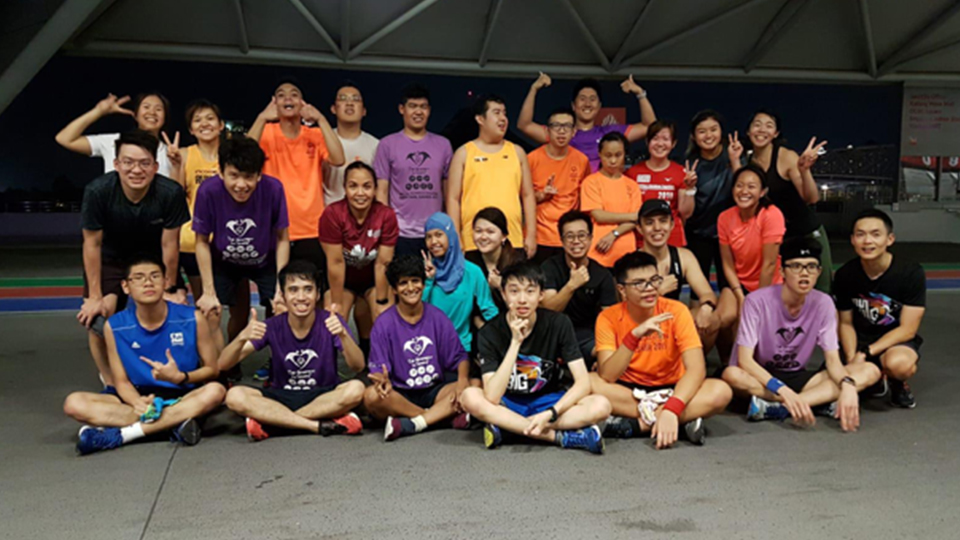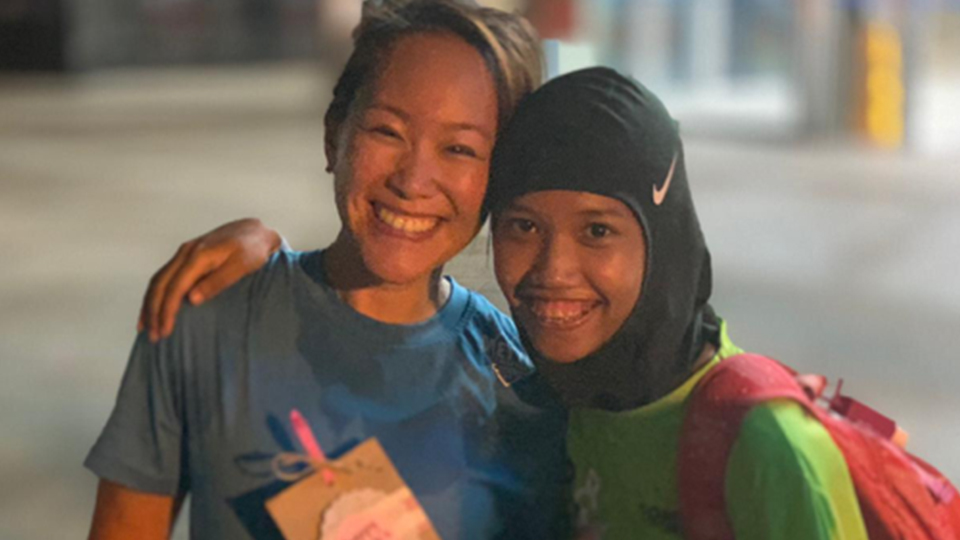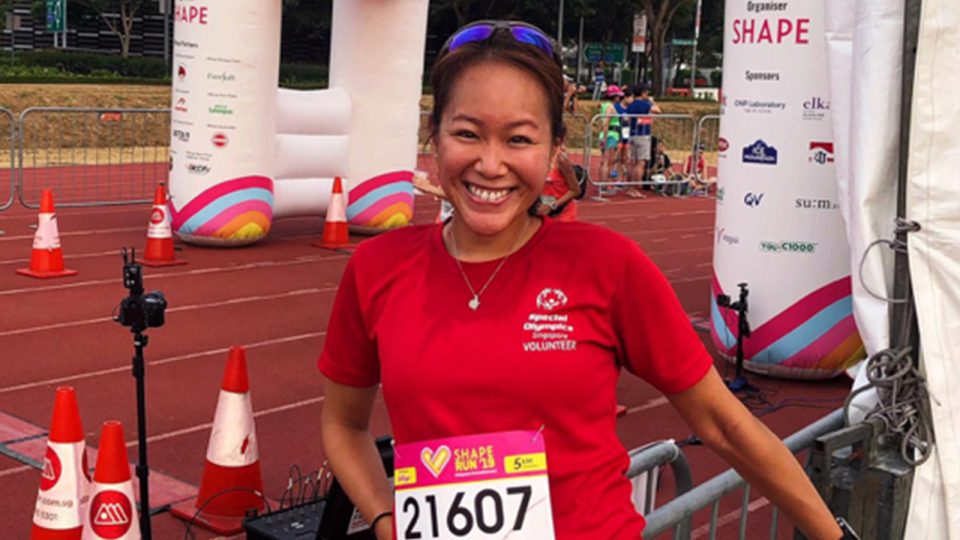Becoming a coach is a calling. Coaches are responsible for guiding and mentoring their athletes. They go the extra mile, put the welfare of their athletes before themselves and stay strong so that they can help their athletes achieve their goals.
For the last 2 years, volunteer Denise Foo has wholeheartedly given her time to coach athletes with intellectual disabilities. She not only coaches but is also an educator, mentor and friend to her athletes.
I had the chance to catch up with her to gain an insight into her life as a volunteer distance running coach for athletes with intellectual disabilities.
As a running community, we can learn from her and help those with intellectual disabilities integrate better into society through the sport of running.
RS: Tell us a bit about yourself?
Denise: I began running at the age of 15 years old after joining my school’s track and field team. Running has been my hobby since then. I experience joy and fulfilment through my ability to inspire and empower people from all walks of life to lead a healthy lifestyle through running.
I am most passionate when I volunteer my time as a running coach with Special Olympics Singapore Distance Running Club.
RS: Tell us about how you got into coaching athletes with intellectual disabilities?
Denise: It was all by coincidence during my regular run at Bishan – Ang Mo Kio Park one evening. I noticed a group of runners in a similar bright orange t-shirt running pass me with the words printed on the back of their t-shirts – “Let me win, but if I cannot win, let me be brave in the attempt.”
Those words made an impact on me and I observed that these runners were from the Special Olympics Singapore Distance Running Club. Coincidentally, a friend of mine knew someone who was volunteering as the head coach of the running group and linked me up. It was from then on that I began volunteering regularly as a coach for athletes with special needs.
RS: What do you enjoy about coaching athletes with intellectual disabilities?
Denise: Every training with my athletes is a gift of life transformation. What I enjoy the most is being inspired by my athletes.
Being inspired by their willingness and passion to take risks, defy the odds, bravely attempt to overcome hurdles and acknowledge that their disability is an ability.
I enjoy celebrating the little victories of what each athlete achieves, not only in their running performance, but also in life. Learning is another thing I enjoy about coaching athletes with intellectual disabilities.
Throughout the years, I have learnt that what matters is being persistent, and not having perfection.

RS: How do you motivate and push your athletes?
Denise: Besides focusing on progressive runs that include increasing the pace per kilometre and total distance covered over time, I also emphasize on creating a fun and caring environment for the athlete by engaging them through interactive conversations and games while running.
I usually run alongside my athletes to motivate them and spur them on especially when it gets tough. I would constantly talk to them and tell them to keep going and not to give up.
One game that I have found to be effective in motivating athletes with intellectual disabilities is a challenge I call, “High Five.” I will raise out my hand as a target for my athlete to tap during the run.
Each time my athlete taps my hand, I will praise him/her for a job well-done. This puts a smile on my athlete’s face, and I can see that they really like it when I constantly interact with them during training sessions.
This game also encourages my athletes to be more sociable and it pushes them because if I pick up my pace, he/she has to catch up in order to tap my hand.
RS: What does running mean to you?
Denise: Apart from burning calories and being a form of stress release, running gives me the freedom to challenge myself both mentally and physically in breaking my limits.
Running is like a journey for me. It reminds me that it is alright to change the pace of my journey, but to never lose sight of my destination.
To me, running means being part of a close-knit family. A family that helps each other, works hard and also plays hard together.
RS: Can you share with us your most memorable moment as a coach.
Denise: My most memorable moment was when one of my athletes ran 18km for the first time. He was initially concerned that 18km would be too long a distance to run but through progressive training, he was able to do so.
At the end of the 18km, having him exclaim “Coach Denise, I did it!” with the widest smile on his face, made me very happy. This was the most memorable moment for me because I realised that all the effort and time that we put into training has finally paid off.

RS: Tell us more about your weekly training schedule.
Denise: The club’s training is held twice a week over a span of 1.5 hours every Monday and Thursday evenings. Our training programme focuses on circuit training, endurance runs and sprint training.
To give our athletes better exposure to different environments and terrains, we usually have trainings at different venues such as Bishan stadium track, Sports Hub Indoor 100plus track, Lower Pierce Reservoir, Marina Barrage and Gardens by the Bay.
After each training, I will conduct a debrief and ask my athletes for feedback about the session. This is also a great way to get to know my athletes better.
RS: Do you have anything else that you would like to share with the running community?
Denise: Coming together is a beginning; keeping together is a process; working together is success (inspired by American poet Edward Everett Hale).
Volunteerism is love in motion, an intangible and humbling experience that can be shared. The journey of another person’s development and transformation will be worth the time and effort contributed.
It’s not about being the fastest and fittest athlete/coach, it’s about having a heart to give and the mind to begin.
Thoughts? | Questions? | Or if you just want to say hello| Feel free to put them in the comments section below!





